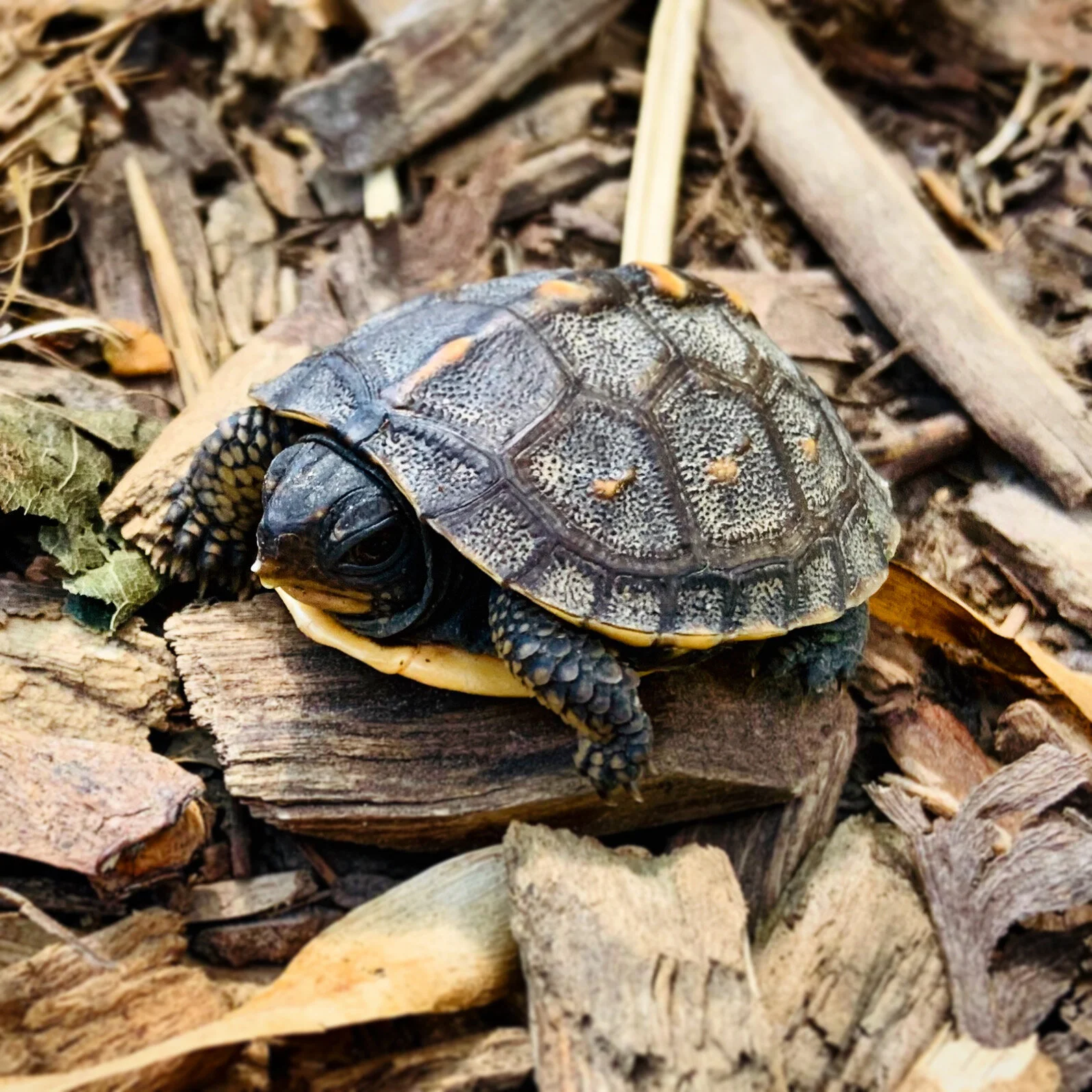Nature: It was here the whole time
By Erica Cirino, Safina Center Launchpad Fellow
It’s a beautiful, warm, blue-sky Saturday afternoon in early October. Like many of my neighbors here on Long Island, I’m spending much of the day outside.
The author and her dog. Photo: Erica Cirino
At one point, I stroll down through our suburban neighborhood to the local park with my dog, Sabi. On one wooded corner, three boys, just entering teendom, are standing with their bikes on a corner, helmets dangling from the handlebars. They are stooped over something small in the street. They turn to me, the only adult around.
“Hey, I think there’s something wrong with this mouse,” one boy says. “We just found it here walking across the road.”
“If it’s even a mouse,” another boy said. “Is it a mouse, a mole or a shrew?”
“What should we do?” the third boy said.
I smiled at them from behind my mask and approached, keeping 6 feet away. What they were looking at was a young white-footed mouse, a wild mouse that many people might call a “field mouse.” The mouse seemed healthy, I informed them. Whiskers twitching, eyes wide, the mouse seemed to be taking the boys in. Sabi eyed the mouse with curiosity, but obediently sat at my feet.
“She’s young and probably a little confused,” I said, before I instructed the boys to gently shoo the mouse to the woodsy side of the road with a long stick. They did, with the utmost care. The mouse scurried off.
“Thanks for caring about this mouse,” I said.
“No problem,” said the boy who did the mouse-shooing, and who seemed to be the group’s leader. “Pretty cool to see a mouse up close.”
I’ve noticed more people recreating on the streets, at the parks and on the beaches here compared to the before time—that is, the days prior to the start of the Covid pandemic. People generally seem more appreciative of the outdoors these days, maybe because there’s no other place they can safely be. And, like these boys, many people seem more observant of the life around them.
Further along in our walk, I spot a young couple watching a gaggle of geese waddle around on a small patch of grass. A car stops and pulls over to the side of the road, and its driver pulls a DSLR out of the backseat to snap photos of a family of deer. Two masked toddlers watch painted turtles bask completely still on a log in the pond, from their parents’ laps. I see half-a-dozen people, standing six feet apart and in masks, holding binoculars to their eyes, staring at the red-winged blackbirds perched atop cattails swaying gently in the breeze. A teenaged girl silently watches an Eastern box turtle hatchling crawl across a wooded walking trail.
Eastern box turtle hatchling. Photo: Erica Cirino
I notice all of this. Then my mind turns to my to-do list, topped by a book I need to finish by the end of the month. My mind stays there until, without thinking much about it, I pause for five minutes on our way back home to see a smeared dagger moth caterpillar through its journey across a street. Inch by inch moves the caterpillar, which is brilliantly painted like a flame with yellow stripes and red spots, and is adorned with cactus-like orange spikes. I do not proceed home until the creature has made it safely across the road.
Smeared dagger moth caterpillar. Photo: Erica Cirino
Smeared dagger moth caterpillar. Photo: Erica Cirino
“Life moves pretty fast. If you don't stop and look around once in a while, you could miss it,” said Matthew Broderick, playing Ferris Bueller in the 1986 flick Ferris Bueller’s Day Off.
Over the last 34 years, Millennials, me included, and Baby Boomers, all too apt to hold onto the nostalgia of cult classic films, have replayed Bueller’s advice over and over again. Yet, few people really seemed to take what he said to heart (and, honestly, after watching Bueller hop into Cameron’s dad’s gleaming red Ferrari perhaps folks have reason to trust the teen’s judgment).
Up to this point, many of us have been moving very quickly through life, too quickly to really grasp our existence and place in the world, pushed to consume and produce by a society focused on profits. Many of us have been, up until March, preoccupied by school, socializing, our nine-to-fives or some combination of these things. Lockdown and distancing measures have forced us to slow down, to stay home, to go outside. And we’re increasingly noticing the natural world around us.
Maybe it’s all the Netflix people are watching these days…but to me it seems like Bueller’s words are finally sinking in. In the midst of a global pandemic, a significant number of us have realized our lives have been rocketing forward at an unsustainable pace. My hope is that this realization sticks, and we’ll continue taking the time to stop and look around once in a while—even after Covid is no longer a concern.
Nature: It was here the whole time. If we don’t take time to stop and appreciate nature now, we might miss out forever.
A male deer (buck), with antlers, and female (doe) rest in the yard at the Safina Center’s HQ on Long Island. Photo: Erica Cirino





